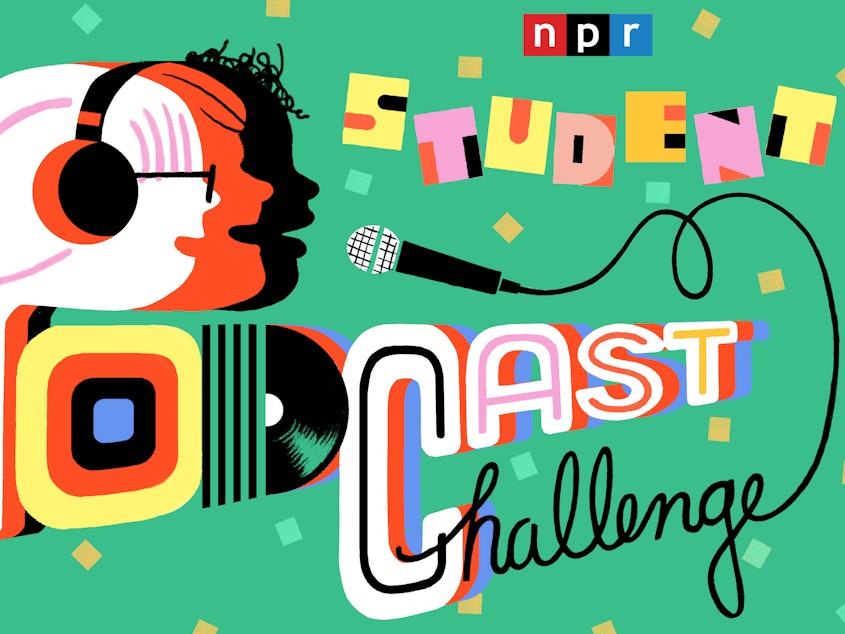The NPR Student Podcast Challenge Is Back!

OK, teachers, you asked for it: It's time once again to turn your classrooms into studios and your lessons into podcasts. That's right, the NPR Student Podcast Challenge is back.
It's a chance for your students to compete with young people all over the country for our grand prize: your students' story appearing on NPR's Morning Edition or All Things Considered.
Last school year, we received nearly 6,000 entries from all 50 states and the District of Columbia, with more than 25,000 students participating.
The contest was a big success — we heard from so many teachers about how much fun they had and how their students got fired up by the project.
And from all the great entries, our judges picked two amazing winners: Eighth-graders from Bronx Prep Middle School in New York City talked about something they'd felt they couldn't talk about before: their periods. And high school students in rural Tennessee told the dramatic story about the time, more than a century ago, when their community became famous for hanging an elephant.
Sponsored
The winners, and even the finalists and honorable mentions, got a lot of attention — from local news stories all the way up to national coverage in places like the Today show on NBC.
Students reported on all kinds of topics from a wide range of viewpoints and backgrounds: high school students at an adult learning center in Washington, incarcerated students in Milwaukee and a student in Louisville, Ky., who talked about what it's like to be transgender. There were podcasts about Tater Tots, pickles, ice carving and Pokémon; climate change, vaping and opioid addiction.
This year's contest will follow the same basic parameters: Beginning in January, teachers or qualified educators can submit student entries in two basic categories: grades 5-8 and grades 9-12. Entries can be as short as 3 minutes and as long as 12 minutes.
(We're still finalizing and updating the rules for this year — we'll post them soon. As before, we'll have guidance on who can enter, how to submit your entry and updated information about our no-music policy and other key rules.)
In Year Two (we're calling it SPC2), our goal is to build in more support for teachers and students, based on feedback from teachers and the lessons we drew from listening to all those podcasts. We'll have more training materials and advice on audio reporting, writing, and sound editing and production.
Sponsored
As we said last year, it doesn't take a lot of fancy equipment to make a great-sounding podcast, and our two grand prize winners — from Bronx Prep Middle School in New York and Elizabethton High School in Elizabethton, Tenn. — showed that.
In fact, you can produce high-quality work with just a smartphone, a laptop computer and easily available editing software. And we'll have lots of tips and materials for how to make your work sound great.
So, whether your topic is skunks vs. hedgehogs or bathroom passes or climate change or something completely different, we're looking forward to hearing them early next year. [Copyright 2019 NPR]



